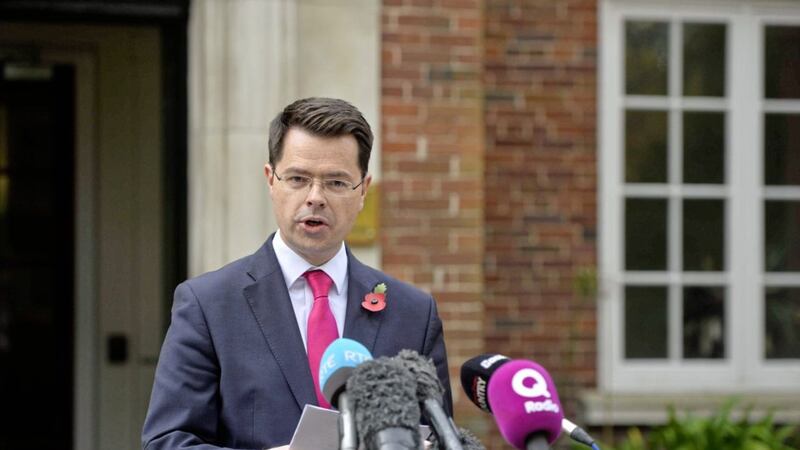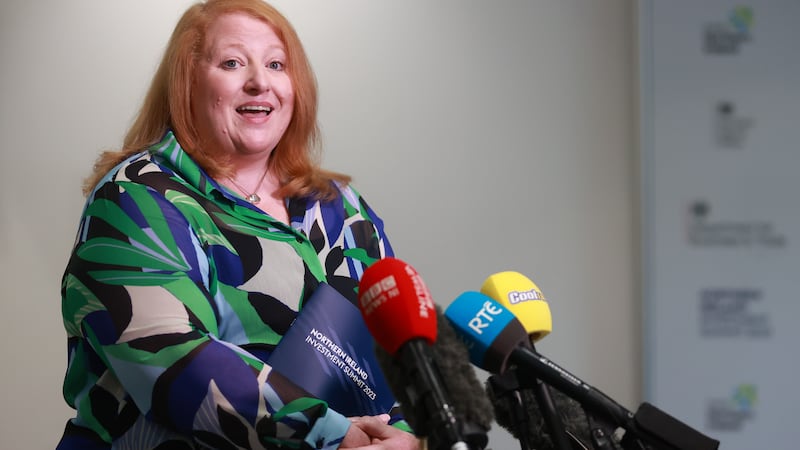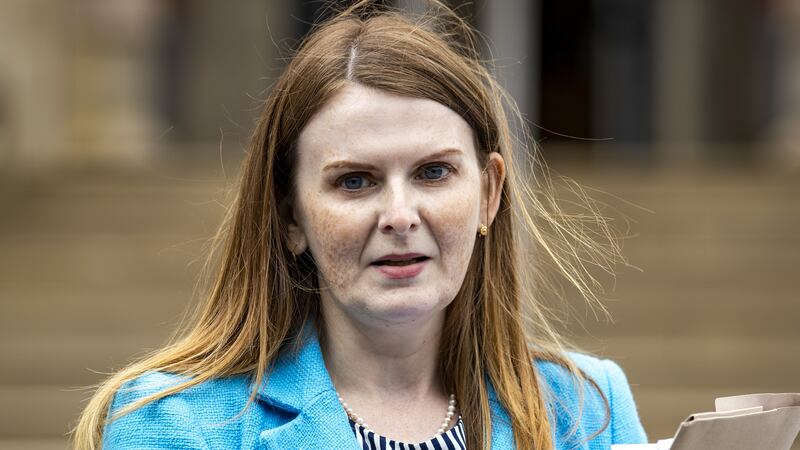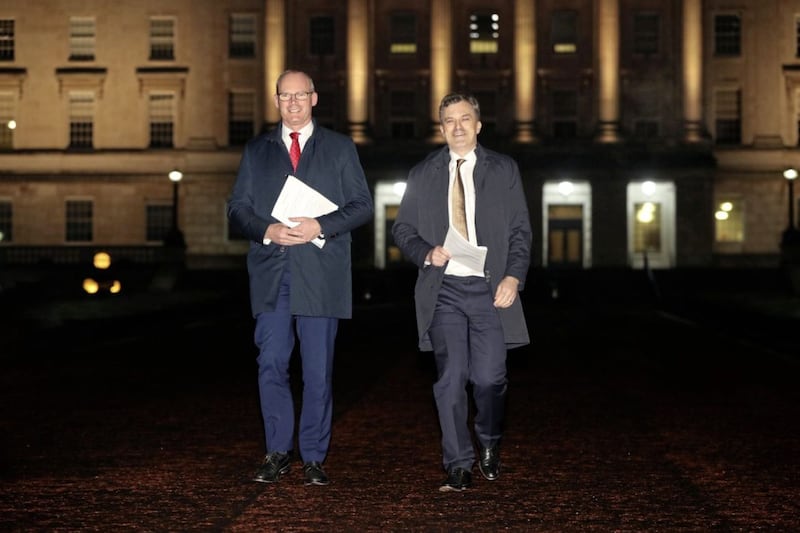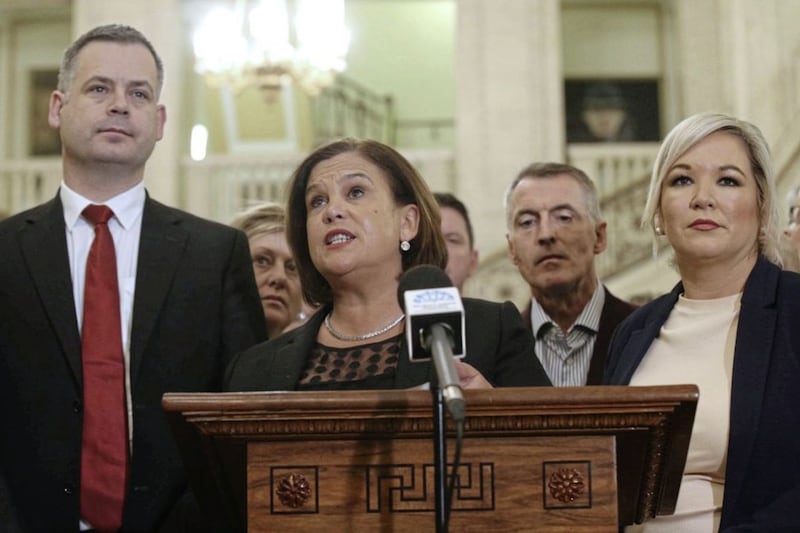MEMBERS of the dormant assembly have moved closer to a pay cut after the latest failure to break Stormont's prolonged deadlock.
As the recent phase of negotiations concluded yesterday without a deal, Secretary of State James Brokenshire signalled that he will be seeking advice on what steps can be taken to "reflect the current circumstances in MLA pay".
The collective salaries of Stormont's 90 MLAs, who have not sat since January, cost the public purse more than £1 million each month.
Any reduction in their £49,500-a-year pay packets would mirror a move in 2002, when then secretary of state John Reid slashed MLAs' pay by 30 per cent as direct rule was introduced.
Mr Brokenshire also confirmed that he plans to pass a regional budget for the current financial year by the end of the month.
He said the move was necessary as Northern Ireland would soon begin to run out of money.
"No government could simply stand by and allow that to happen," he said.
The secretary of state addressed the media at Stormont House in Belfast after a period of intensive talks failed to deliver agreement between the DUP and Sinn Féin.
Monday's original deadline for concluding the negotiations had been put back 24 hours after Mr Brokenshire suggested there had been some progress.
However, the parties left Stormont on Tuesday evening without a deal.
Irish foreign affairs minister Simon Coveney said the secretary of state was moving a budget "with the utmost reluctance".
The Fine Gael minister said both governments found it "regrettable and deeply concerning" that eight months on from the assembly election, a power-sharing executive was not in place.
"The devolved power-sharing institutions are the heart of the Good Friday Agreement, and vital for the direction of public services in Northern Ireland and for the peace process as a whole," he said.
Mr Coveney reiterated Dublin's commitment to the Good Friday Agreement and said that if the devolved institutions were not restored it would be the responsibility of the governments to "ensure that the north/south and east-west institutions of the agreement can continue to operate effectively".
However, he urged the parties to avoid such a scenario and to "continue to strive for the necessary agreement".
Sinn Féin northern leader Michelle O'Neill said her party had been "flexible" and "prepared to stretch ourselves" but added that endless talks without conclusion were not sustainable.
Notably, she did not call time on the process and insisted Sinn Féin would continue to talk.
However, it seems unlikely that serious negotiations will take place before Stormont's two big parties hold their annual conferences later this month.
Ms O'Neill also claimed the negotiations had been hampered by the post-Westminster election deal between the Tories and the DUP.
The Press Association was reporting yesterday that Theresa May remained committed to delivering the £1 billion linked to the pact, despite the continued deadlock at Stormont.
Sinn Féin's northern leader said the secretary of state was wrong to lay blame solely at the feet of the parties.
"He and the Irish government also have obligations," she said.
She said the "issue of rights" was not going to go away.
DUP MP Gregory Campbell accused Sinn Féin of "rank hypocrisy" and said his party was prepared to form an executive immediately.
"We want devolution – Arlene Foster has led our talks team and is rightly frustrated that government is being held back by a narrow political agenda," he said.
"We received an overwhelming mandate to ensure any deal was fair. That mandate has to be respected, just as we respect the mandate of others."
SDLP leader Colum Eastwood said the imposition of a budget constituted direct rule.
"A Tory/DUP government will do nothing for the rights of people in the north. It only strengthens the DUP's intransigence," he said.
"It will do nothing for the rights of Irish language speakers, the LGBT community or victims."
Ulster Unionist Party leader Robin Swann said: "Northern Ireland is now coming slowly and deliberately to direct rule, at the hands of Sinn Fein and the DUP."
Green leader Steven Agnew said it was unreasonable for MLAs to continue to receive their salaries and it was now time for Mr Brokenshire "to start considering different approaches if he is serious about breaking the impasse".
A US State Department statement said: "We urge all parties to continue dialogue in order to reach a viable power-sharing deal and re-establish the Northern Ireland Executive as soon as possible."
